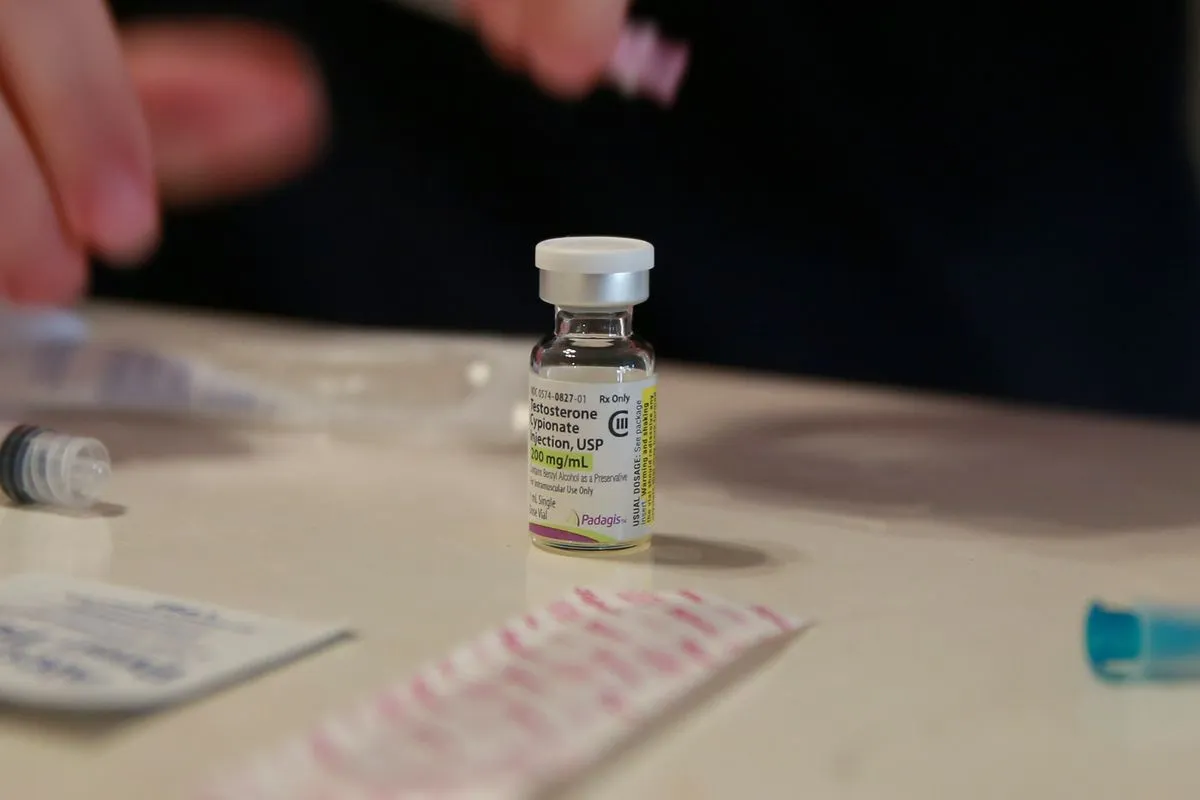Muscle-Building Supplements May Lead Young Men to Steroids: A Growing Concern
In recent years, the use of muscle-building supplements has become increasingly popular among young men, particularly those aiming to enhance their physical appearance and athletic performance. These supplements, which are marketed as safe, natural alternatives to anabolic steroids, often promise quicker results in terms of muscle growth and fat loss. However, there is a growing concern that the use of these supplements may serve as a gateway to more dangerous substances, particularly anabolic steroids, leading young men down a path that could have long-term health consequences. This issue has raised alarms among healthcare professionals, researchers, and policymakers, who are calling for greater awareness and intervention to prevent steroid abuse and its associated risks.
The Rise of Muscle-Building Supplements
Muscle-building supplements, often referred to as “legal steroids” or “testosterone boosters,” have been a staple of the fitness and bodybuilding industries for decades. These products are advertised as ways to increase muscle mass, improve strength, and enhance overall athletic performance. They come in various forms, including protein powders, creatine, branched-chain amino acids (BCAAs), pre-workout formulas, and testosterone boosters.
The appeal of these supplements lies in the promise of faster results without the need for extreme training or drastic lifestyle changes. For young men seeking to build muscle or enhance their physique, these products can seem like an easy solution to their goals. Social media influencers, fitness models, and athletes often promote these supplements, further fueling the demand among their followers, many of whom are impressionable young men.
While many muscle-building supplements are generally considered safe when used as directed, there is a lack of regulation in the supplement industry, which means that some products may contain harmful or unlisted ingredients. Furthermore, the allure of achieving rapid muscle growth or improved performance can lead some individuals to misuse or overuse these supplements, potentially opening the door to more dangerous substances, such as anabolic steroids.
Anabolic Steroids: The Next Step?
Anabolic steroids are synthetic substances designed to mimic the effects of the male hormone testosterone. They are often used by athletes and bodybuilders to increase muscle mass and improve physical performance. While they can produce significant results in terms of muscle growth, the use of anabolic steroids comes with a wide range of potential health risks, including liver damage, cardiovascular problems, hormonal imbalances, and psychiatric effects such as aggression and mood swings.
For many young men who begin using muscle-building supplements, the desire for quicker and more dramatic results may push them toward experimenting with anabolic steroids. Some may feel that the supplements are not delivering the desired outcomes, leading them to seek stronger, more potent substances. The normalization of steroid use in certain fitness and bodybuilding communities can further perpetuate the idea that steroids are a necessary tool for achieving a certain level of physical appearance or performance.
It is important to note that not all individuals who use muscle-building supplements will inevitably turn to anabolic steroids. However, the use of supplements can create a psychological mindset that prioritizes rapid results, which may eventually lead some individuals to take dangerous shortcuts, such as using steroids. This progression is particularly concerning when considering the long-term health risks associated with steroid abuse.
The Psychological Factors Behind Steroid Use
The decision to use anabolic steroids is often influenced by a combination of psychological, social, and environmental factors. For young men, the pressure to conform to societal ideals of masculinity and physical appearance can be overwhelming. Media portrayals of muscular, toned bodies as the standard for attractiveness and success can lead to body dissatisfaction, especially among young individuals who may already be struggling with self-esteem or identity issues.
Muscle-building supplements are marketed as a way to help individuals achieve the ideal body, and while they may provide temporary benefits, they do not guarantee the rapid and dramatic muscle gains that some users seek. This can create frustration and disappointment, which may drive some individuals to seek more potent solutions, such as anabolic steroids. The desire to gain muscle mass quickly and the social pressure to maintain a muscular physique can be strong motivators for steroid use, despite the risks.
Moreover, the availability of anabolic steroids in some circles, particularly within bodybuilding and fitness communities, can make it easier for young men to access these substances. The normalization of steroid use in certain social groups can create an environment where steroids are seen as a necessary and acceptable tool for achieving physical goals, further reinforcing the cycle of misuse.
The Health Risks of Steroid Use
Anabolic steroids are associated with a wide range of potential health risks, many of which can have long-term consequences. Some of the most common and serious side effects of steroid use include:
- Liver Damage: Steroids can be toxic to the liver, leading to conditions such as liver damage, liver cancer, and jaundice. Long-term steroid use can also cause liver failure.
- Cardiovascular Issues: Steroid use has been linked to an increased risk of heart attacks, strokes, and high blood pressure. Steroids can also negatively affect cholesterol levels, contributing to the development of atherosclerosis, or the hardening of the arteries.
- Hormonal Imbalances: Steroids can disrupt the body’s natural production of testosterone, leading to a condition known as hypogonadism, where the testes produce insufficient amounts of testosterone. This can result in infertility, erectile dysfunction, and decreased libido.
- Psychiatric Effects: Steroid abuse has been associated with mood swings, irritability, aggression, and depression. These psychological effects, often referred to as “roid rage,” can lead to violent behavior and strained relationships with others.
- Physical Side Effects: Steroid use can cause a range of physical side effects, including acne, hair loss, and the development of breast tissue in men (gynecomastia). In some cases, steroids can also cause stunted growth in young men who have not yet reached full maturity.
- Addiction: Some individuals may develop a psychological dependency on anabolic steroids, leading to continued use despite the potential for negative health consequences. Steroid addiction can be difficult to overcome and may require professional treatment.
The Role of Education and Prevention
Given the risks associated with anabolic steroid use, it is crucial to address the issue of muscle-building supplements and their potential link to steroid abuse through education and prevention efforts. Educating young men about the risks of steroids and promoting healthier, more sustainable approaches to fitness and muscle growth is essential.
Public health campaigns and school-based education programs can help raise awareness about the dangers of steroid use and encourage individuals to seek safer alternatives for building muscle. Promoting the importance of balanced nutrition, regular exercise, and mental health support can help individuals achieve their fitness goals without resorting to dangerous substances.
Furthermore, increased regulation of the supplement industry is necessary to ensure that products marketed as muscle-building supplements are safe and free from harmful ingredients. Stronger oversight of the manufacturing process and greater transparency in labeling can help reduce the risk of consumers being misled into using products that may have unintended consequences.
The use of muscle-building supplements has become a widespread practice among young men, but the growing concern that these supplements may lead to steroid abuse cannot be ignored. While many of these products are marketed as safe and effective, the desire for rapid results and the social pressures surrounding physical appearance can drive individuals toward more dangerous substances, such as anabolic steroids. The risks of steroid abuse are significant and can have long-lasting health consequences, including liver damage, cardiovascular issues, and psychiatric effects.
Education, prevention, and regulation are key components in addressing this issue and helping young men make informed choices about their health and fitness goals. By promoting safer, healthier alternatives and providing the necessary resources for mental and physical well-being, we can help prevent the dangerous progression from muscle-building supplements to anabolic steroids. It is essential that society takes a proactive approach to address this growing concern and protect the health of young individuals for the long term.























